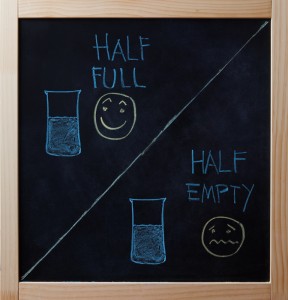In America we talk about the pursuit of life, liberty and happiness. Happiness for some seems easy. While for others, happiness may seem allusive or always a little bit out of reach. Happy people are often described as having a “glass is half full” mentality meaning they appreciate and value what they have versus focusing on what they do not have.
So how do researchers really define happiness? Psychologist Ed Diener, author of Happiness: Unlocking the Mysteries of Psychological Wealth, describes what psychologists call “subjective well-being” as a combination of life satisfaction and having more positive emotions than negative emotions.
In a nutshell, to achieve a level of personal happiness, we must learn to manage and control our feelings. And while this may seem easier to say than do, one can more successfully manage their emotions by using the basic tips from the 8 limbs of Patanjali that I had posted earlier. Following this disciplined approach on a regular basis allows us to train our minds and body to develop good habits. We can cultivate personal habits to manage our feelings by continuously observing or reflecting on our thoughts, words and actions. Our habits, good or bad, set the pathway to our success or failure in life.
How we feel is often just a state of mind. At any given moment you can be excited, scared, happy or sad. Seeking to understand our feelings and the triggers that may cause impure thoughts is required to maintain perspective and overall balance. For example, we are taught to be ambitious. We focus on winning and being number one. But winning at any cost or at the expense of others may provide an immediate gain, but is certainly not a formula for long tern success or satisfaction. Knowing your own capability and how far you can reach without hurting others, compromising your values or breaking any laws creates a more realistic approach to manage expectations and sustain balance in one’s life. As the founder of Creative Choice Homes based in Palm Beach Gardens, Florida, I try to practice this balance every day.
In our fast world, balance is difficult to find let alone maintain. Reflecting day to day or even during the day, allows us to recalibrate. With self-discipline and wisdom we can find optimal balance and happiness.
As the Millennium generation continues to focus on conscious living, it is highly likely that they will evolve technology to further manage feelings and keep emotions in check. New applications, devices and gadgets may be the tools of choice in the future, but the end game is the same. Here’s to a glass half full and a happy, enriched life.
